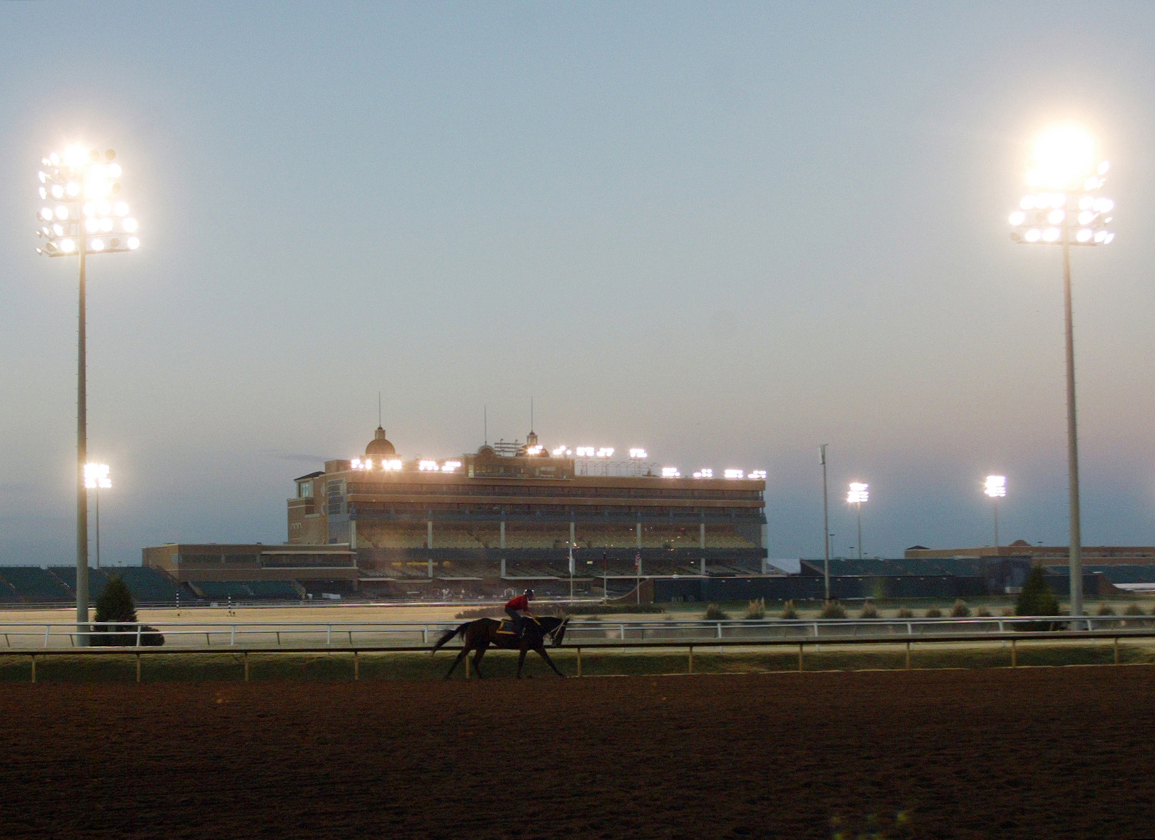The horse…inquisitive, sensitive, totally aware, much smarter than you think, fearful, and a creature of habit. When my daughter returns to our family barn after training in Florida for six months, her retired horses greet her with a whinny. An old friend has returned.
The horse is a fabric of historical Texas. The horse represents how we all arrived here, and how we survived in the earliest days. Some horses are bred to run–that's their job. All animals need a job and thrive when working. The thoroughbred's instinct is to run as fast and as far as it can. As long as there are horses, there will be horse races, and men and women will admire the sheer determination, stamina, strength, and speed of the majestic horse.
The tragedy at Churchill Downs this past May, in which twelve horses broke down on the racetrack, fractured their lower legs and needed to be euthanized, should never be repeated. The cause of this rash of sudden breakdowns is uncertain: the current American thoroughbred may be bred too strong up top across the chest with lower legs that are relatively too thin and fragile, or changes in the surface of the track due to humidity and weather variations may increase the risk of a ligamentous injuries which can then predispose to falls and catastrophic fractures. Most horses can survive the surgery, but few can survive the confinement and partial weightbearing needed to allow these fractures to heal.
The Jockey Club, in recognizing this problem, sought relief from Congress and in one of the few truly bipartisan pieces of legislation in the past 10 years, the Horseracing Integrity and Safety Act (HISA) was passed. This lifesaving legislation allows the government to designate a corporate entity to unite the horse industry, to find ways in which horse tragedies can be eliminated, and drug abuse can be regulated at the Federal level.
The model is not a new one. A Federally sponsored corporate entity serves to regulate the Securities and Exchange Commission. The needs are similar. Regulation among multiple states with multiple interests are consolidated under a single governing body with superior resources and a single purpose-driven goal.
In response to the HISA act, most states have supported and endorsed this model, but a few outliers, including the State of Texas represented by the Texas Racing Commission, have sought to preserve the status quo.
The Commission's stated rationale is that only the Texas Racing Commission may regulate parimutuel racing and simulcast wagering in Texas. Although National regulation affects all aspects of our life living in Texas, the Texas Racing Commission, due to this perceived legal technicality, has been unable to find a compromise solution. As a result, the Texas racing industry suffers, the Texas patrons who enjoy horseracing suffer, and our thoroughbred gladiators suffer the most.
A second consequence of this stalemate is that racetracks in Texas can no longer simulcast Texas races to other communities and states and receive wagers allotted for their racing program. Without the ability to simulcast, the betting handle at Sam Houston Racetrack during the winter meet fell 90% and the handle at the current Lone Star spring and summer racing meet is not significantly better. Tracks survive by taking approximately 15% of the betting handle to support their operations and purses. The current situation is unsustainable.
Having served on the Texas Racing Commission for 10 years, including four years as Chairman, I can attest that the Commission staff, stewards, and the working regulators are superb and unmatched in their quality and dedication. The political appointees of the Commission, however, have lost sight of their designated purpose.
In this one rare instance, Congress has actually provided us–and our horses–a solution. Ultimately, HISA has the resources, the regulatory power, and sophisticated lab testing that can root out illegal drug use, research track surfaces, and analyze breeding patterns. HISA has the potential to improve the sport and create a safe horseracing animal that can thrive in a newer environment.
The Texas Racing Commission needs to recognize its responsibilities and protect our animals in an ever-changing world. The consequences of the Texas Racing Commissioners' opposition to these efforts simultaneously leaves our horses at risk and our tracks on the path to ruin.
Texas deserves better.
Robert Schmidt, MD is a Fort Worth based orthopedic surgeon specializing in joint replacement surgery of the hip and knee. He and his wife had bred and raced thoroughbreds under the colors of Oak Meadow Farm. He was appointed by Govenor Perry to the Texas Racing Commission and served for 10 years, including 4 years as chairman. He currently serves as Mayor of Annetta North, Texas.
Not a subscriber? Click here to sign up for the daily PDF or alerts.






